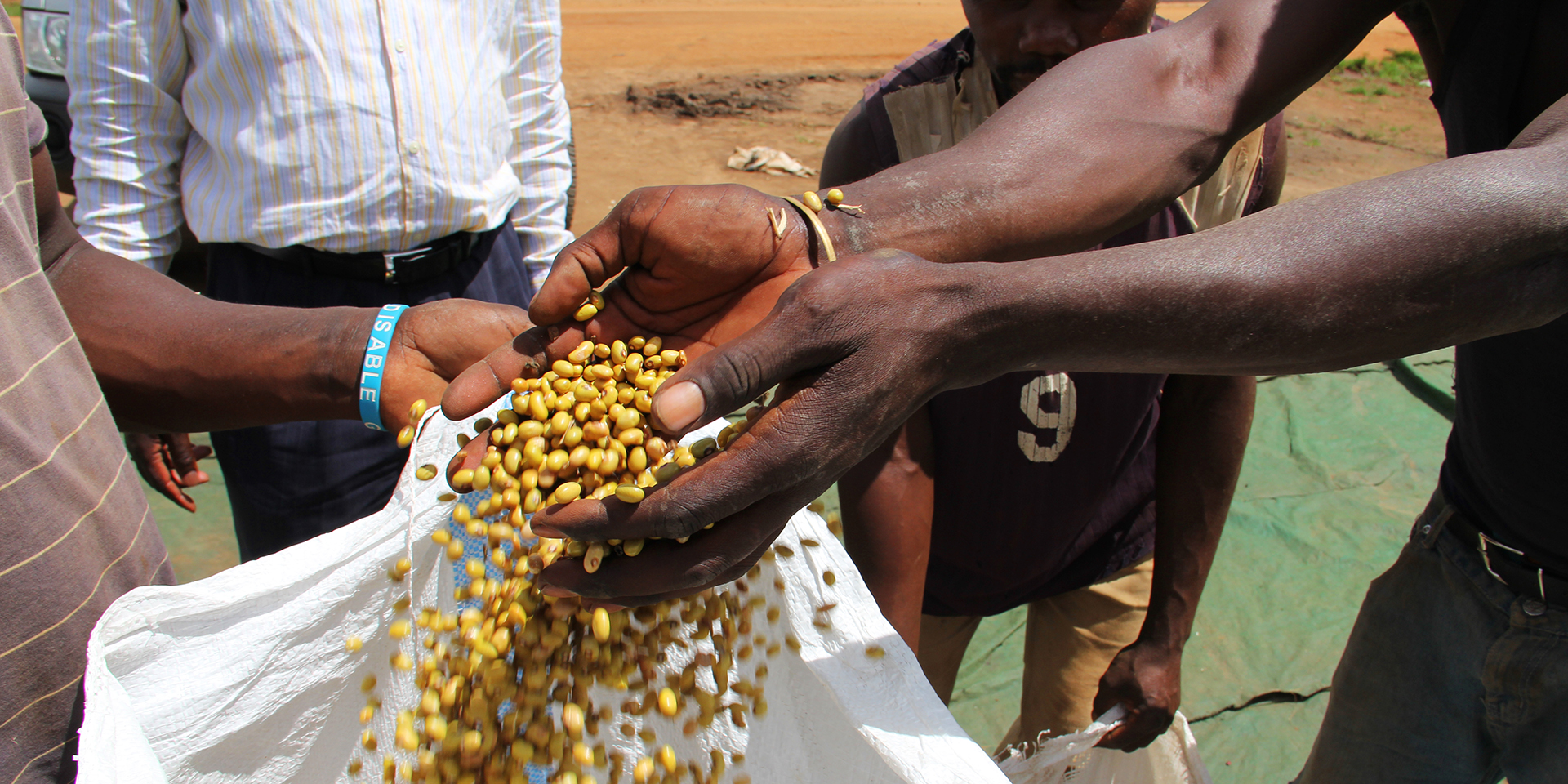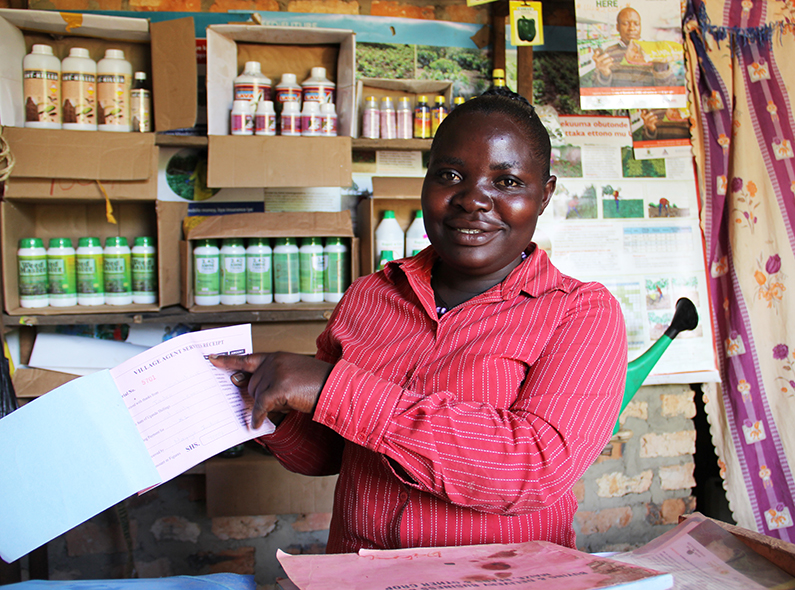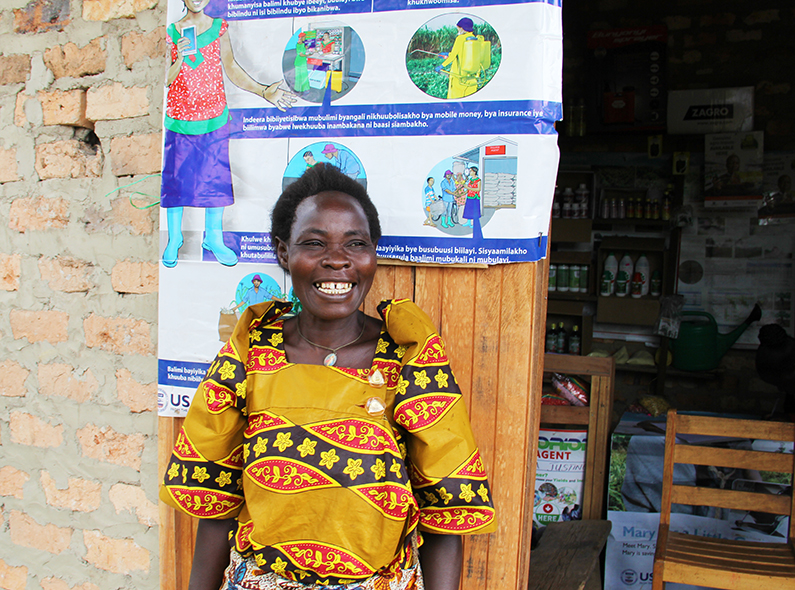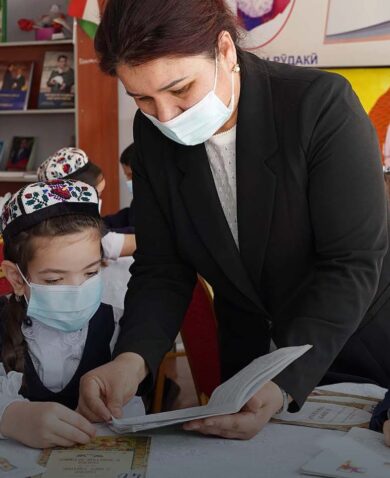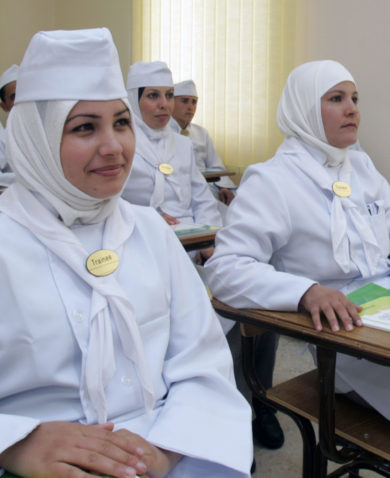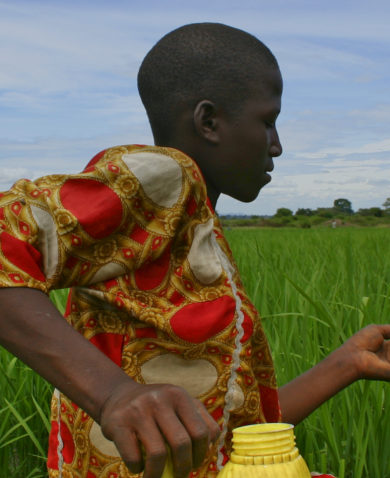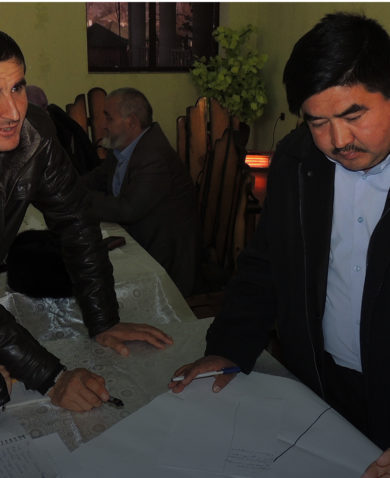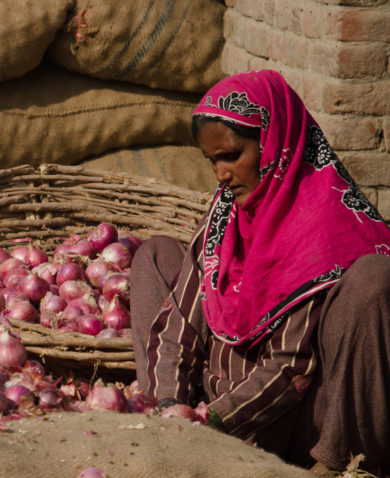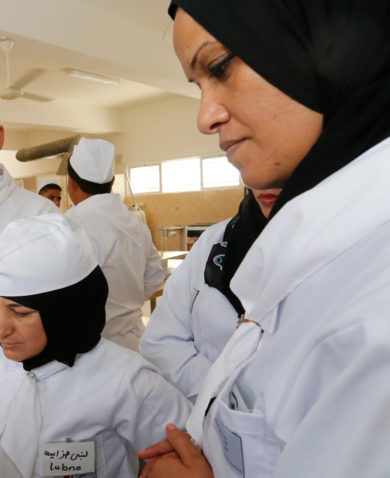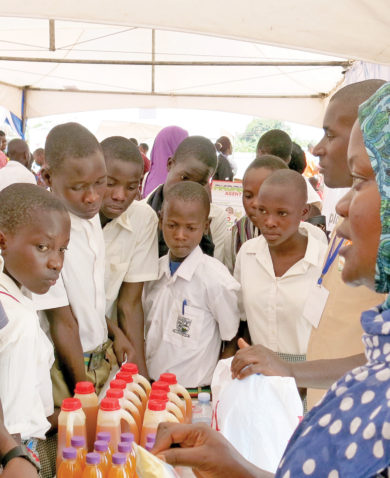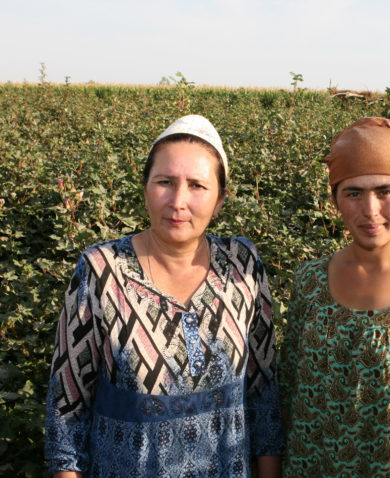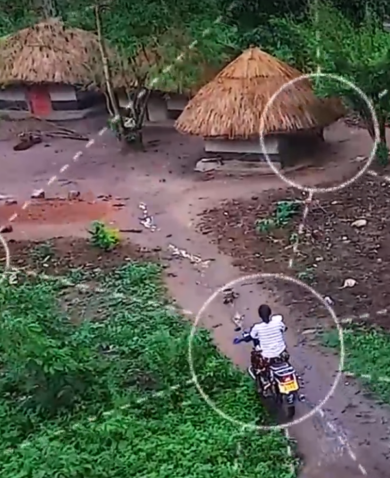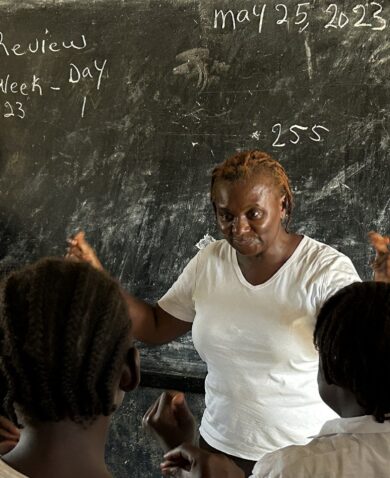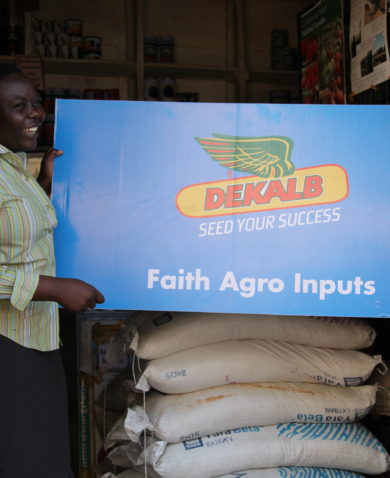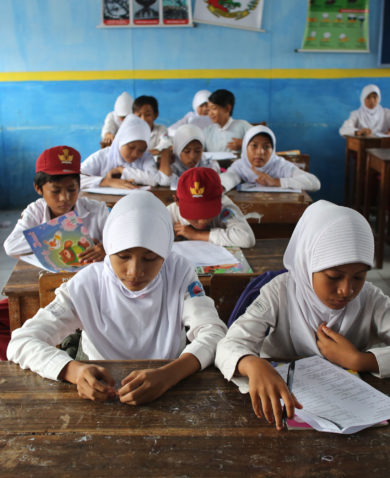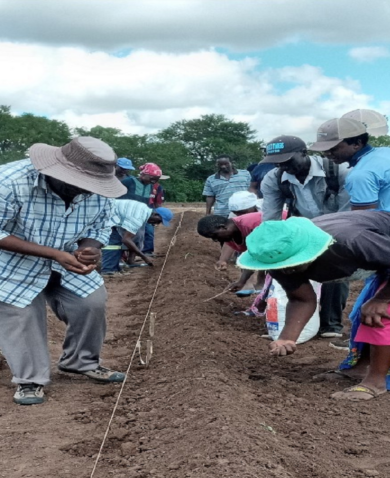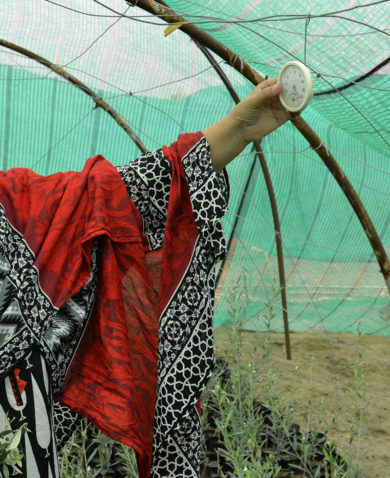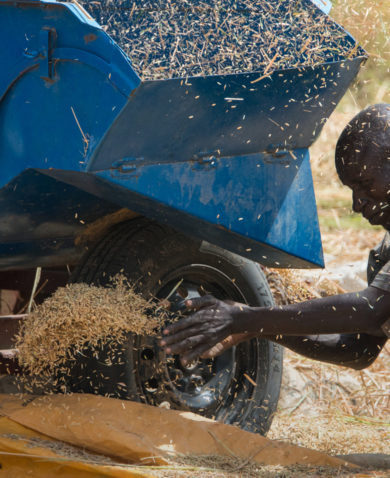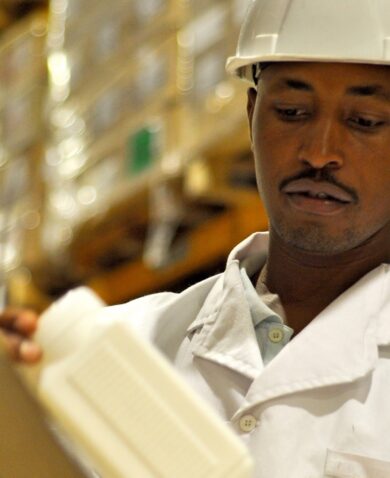The village agents have also introduced the use of mobile money after taking a financial literacy workshop with CPM, which has been popular with farmers. “Here in the village, we do not have banks,” Justine says. “When you use mobile money, there is security for your money.” The farmers also prefer mobile money to dealing in cash because it reduces the number of trips they must make to town. Rather than bringing their crops to town to sell to the village agent, and then returning later to pick up the payment, farmers only need to make one trip and then are paid automatically through the mobile money network, which is widespread in Uganda.
Helping Farmers, Growing the Economy
Through these services, Justine and the six other village agents she oversees work with more than 1,300 farmers. Justine has seen a significant increase in production after they started working with farmers. Her farmers used to produce approximately 500 kilograms per acre per season but now, they produce closer to 2,000 kilograms per acre or more.
According to Maria Goretti Masala, a farmer Justine supports, “Before, if we had a problem with a pest, the crops would just die. It would be a total loss. Now, the challenge can be solved.” Maria’s seasonal harvest has increased by approximately 400 percent since Justine became her village agent.
Farmers’ additional incomes have made a significant impact on their lives. “Before, farmers rode bicycles,” Justine remarks. “Now, they have motorcycles. You see houses made of bricks. Before we had mud.”
Farmers are not the only ones to benefit from the model. “Even as village agents, our lives have changed,” Justine says. Justine owns rental properties in town now and can pay school fees for her two children to attend good boarding schools. Edward, the trader who was one of the first to adopt the village agent model in Mubende District, has also been able to grow his business significantly. Now that he is buying larger quantities of crops from the village agents rather than small quantities from individual farmers, he can buy as much as 20 tons of grain a day depending on his access to capital, compared to one to two tons a day before.

